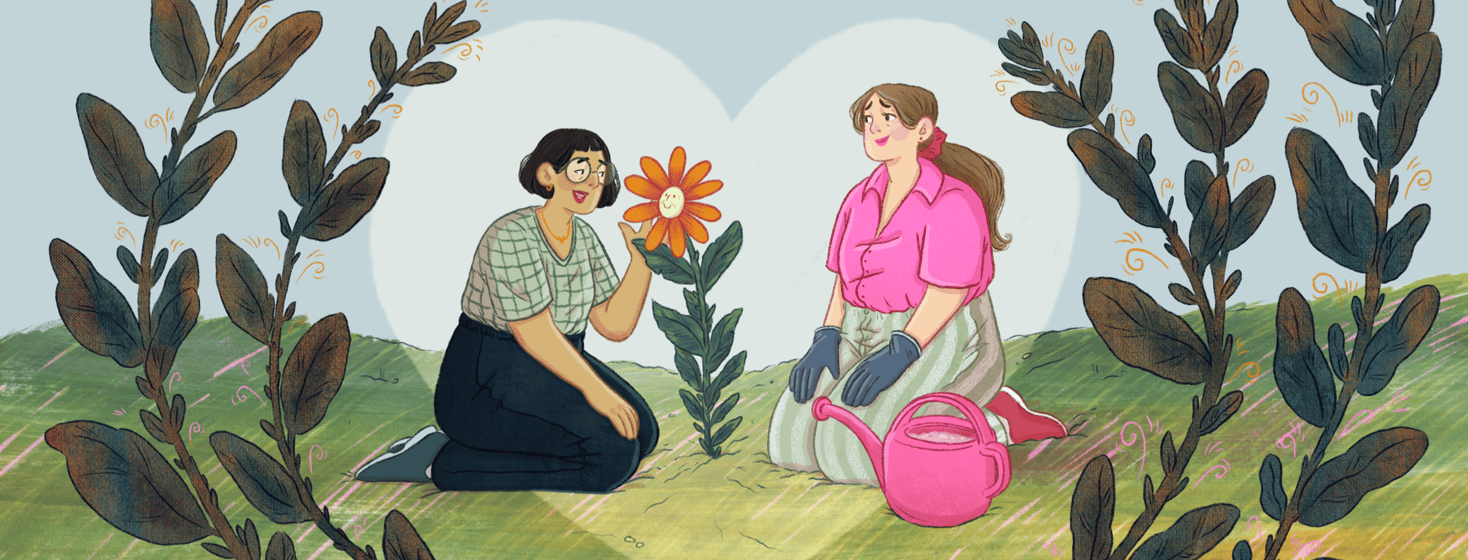When You Care For My Loved One, You Care For Me
Amidst the challenges and heartaches of caring for a loved one with dementia, there are also moments of deep joy. I reflected the other day on one of the most caring things I have experienced as a caregiver.
It's this: The friends who go out of their way to go up to my mom, make eye contact with her, and greet her by name.
Even though she doesn't remember them from the last time we got together. Even though she likely won't remember this encounter either. And even though it's a little awkward to try to have a conversation with someone whose conversation skills are diminished by the disease.
Life as a #millennialcaregiver can be lonely
As a millennial caregiver, very few of my peers are also taking care of parents. Most are pursuing career growth or raising children - which I'm also doing but in addition to caregiving for my mom.
They can't relate to the new life I'm living as a dementia caregiver, but I don't hold that against them. We know how it goes - until you walk in someone else's shoes yourself, you cannot really begin to imagine what it's like.
But it still came as a bit of a surprise when I became a caregiver for my mom, and very dear friends distanced themselves or said uncomfortable things when I tried to share about my caregiving life.
I also know that some people feel weird or even scared around seniors and especially seniors living with dementia. I've been there. It can be very awkward, with long pauses or confusing answers. And millennials do not like feeling awkward!
At the same time, it makes me appreciate even more the people who step out of their comfort zone and acknowledge my mom as a person.
A simple gesture
It's a common scenario: My mom and I walk into a room, and everyone is greeting one another.
My friends who know my mom and the disease she lives with have one of two responses: Talk only to me and avoid eye contact with my mom, or greet both of us in a friendly, kind way. That second response is simple but so full of meaning. It honors my mom's dignity and worth.
The woman she was before dementia was the most social person in the room, handling with ease not only people's names but likely their entire family's as well, including a few generations back. She knew every one of my friends and the friendship history we had, with all its ups and downs. She cared about my life and the people in it, and I know she still does.
Two years ago she moved to live with my family. It was states away from her childhood home and those lifelong connections. It was a last resort because of safety issues but a heart-wrenching change for all of us.
Showing respect to a person with dementia
My mom does not remember my friends anymore, even ones from before the disease. Crowds are overwhelming to her, and she has a hard time following conversations that happen around her.
So now I prompt her with one-line titles behind everyone's name: "Mom, I was just talking to my friend Ashley, my roommate from college," or "Our friends are coming over tonight, she is a nurse, and he's the youth pastor at our church. You've met them before!"
I want her to feel included and prepared. I want her to still be connected to people and not worried about a gathering with people she doesn't remember.
Even though she doesn't remember friends' names, I know she can still feel the care and respect of these promptings from me and greetings from friends. She feels included when people look her in the eye. She feels loved when people ask questions about how she's doing or about her dog, Beauty.
When you care for my loved one, you care for me
These friends who simply acknowledge my mom and include her in a conversation remind us all that my mom is a human being and not a disease. When you have friends who are pure gold and love your person with dementia like this, never let them go! I think they are actual angels in your life.
A dementia diagnosis is not a death sentence, and quality of life is so important. It makes me tear up to think about the people who have pushed through the discomfort and awkwardness of talking to a person with dementia. Because when they show my mom that they care about her, it shows me they care about me too.
Caregivers, what are some examples of how someone cared for your loved one?

Join the conversation